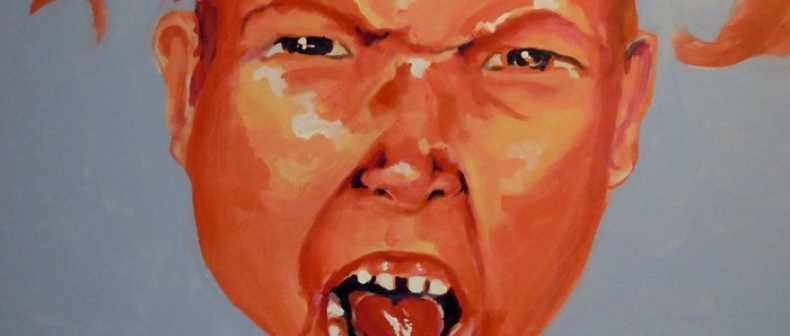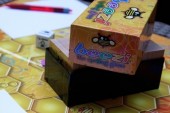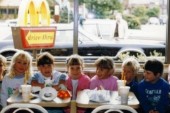
Illustration by Tiffy Thompson
Alyson Schäfer‘s parents were parenting experts. Her parents’ parents were parenting experts. Rudolf Dreikurs (who pioneered a ground-breaking parenting model based on Alfred Adler’s school of individual psychology) was friends with her grandmother. She grew up surrounded by Adlerian theory. But it wasn’t until she had her own children that she started to wonder what all of those famous people from her childhood had been blathering about when she was a toddler. She vowed to learn everything she possibly could about raising kids.
Toronto Standard caught up with the best-selling author and long-time parenting expert this week. Here’s what she thinks of helicopter parents, the best way to deal with bratty kids, and the mysterious cult of Honey Boo Boo.
What is your appeal to today’s parents?
I understand being a working mom, I understand being a single mom – I’m divorced. I can add a modern sense to Adler’s theories. And I’m humorous – I think people kind of like my personality.
At my workshops, I think that a lot of people think that because the topic is parenting, it’s going to be bows and frills and lighthearted and silly. A lot of dads especially think it’s not a substantial matter. But we have to grapple with these major philosophical issues, like how do we maintain that fine line between not squelching your child’s spirit and also socializing them into the community? Very quickly they get that I’m going to speak to them in a much more sophisticated way about the subject matter. It’s philosophical, it’s scientific, it relates to the business world. I get a reputation for making parenting a substantial intellectual arena.
Amy Chua’s “Battle Hymn of the Tiger Mother” posited that modern Western parents have become too eager to praise everything kids do in a bid to preserve their precarious self esteem. The insinuation was that this approach has created a monster — a generation of bratty, entitled and lazy kids. What would you say to this?
She is making a plea to say that we’ve gotten too soft in this culture, and we need to go back to a more strong-fisted approach in parenting. What she’s describing is the oscillation that happens in most relationships between parents and children. Historically, the way we distribute power is we live in what I would call a “slave-tyrant relationship”. In the old days, the parents were the tyrants and the children were the slaves.
And then we started to understand that using punitive techniques hurt children’s self esteem, it ruptured the primary attachment, and all of these other negative effects. We ended up becoming doormat parents, or permissive parents. All that did was flip the relationship – so suddenly the children became the tyrants and the parents became the slaves to the children’s tyranny. She’s saying that we can’t be slaves to our children any more, take back the reins! But all she’s suggesting is flipping it back so parents once again are the tyrants and the children go back to being slaves.
I do agree that we should not be doormat parents, and I do agree that kids have too much power. But I don’t think that her answer is correct because it’s going back to slave-tyrant relationships, which is based on obedience and ‘minding my will’. I teach another option: raising kids to be cooperative rather than obedient. I’m teaching parents how to be the leader of the family – to be boss of the family – without being bossy.
What’s the big mistake you see most parents making?
The pampering. The belief that our kids are fragile and we need to bubblewrap them and helicopter over them. We’re over-protective. Really, what we’re doing is setting up our kids to be psychologically fragile, because we think they’re fragile. It’s kind of a self-fulfilling prophecy.
What bothers you most in parenting trends?
We’re taking typical childhood behaviors that could be improved through standard counseling, parenting classes and improved discipline, and parents are too quickly saying “Oh, that’s ADHD” or “That’s Asperger’s.” It’s amazing how parents want to diagnose and label their kids in order to say ‘it couldn’t possibly be my parenting’. Or, ‘lets just solve this with a pill instead of making me do more than I’m doing’. I’m very worried about the idea that we’re pathologizing typical childhood behaviors. A crying baby – we used to say they had colic – now they say they’re bi-polar and they put them on anti-psychotics. It’s unbelievable to me.
Why do we hear so much about babies/baby bumps in the media? Why do we care?
Theres a tsunami of things happening. We have smaller families. Take any species and compare. Like salmon that spray a thousand eggs on the floor of a creek — and compare this with an elephant that only has one baby every couple of years – watch how they look after their young. If you have very few young, you are far more doting.
Women have decided that we can control our reproduction with the pill, we have more social equality so we’re getting educated, we’re entering the workforce, we’re putting off having kids until we’ve established our careers, then we find out we have a fertility problem. If you have a couple of miscarriages or you have to go to a fertility clinic – by the time you have that baby it’s already blessed and sacred.
In the 50’s you didn’t know what actresses had children! Nobody cared about kids. That stuff was off the radar. Now, we are obsessed with kids. We want to know all about the royal babies and the star babies and the Honey Boo Boos. We’re a very kid-centric culture.
What is the best way of dealing with bad behavior?
I teach parents a way of understanding the usefulness of the child’s behavior. Before we figure out what we’re going to do about the behavior, we have to understand why they do it. They don’t just do it randomly. They do it for a purpose.
So Freudians would say something like what CAUSED them to do it, and Adler was not a causative thinker. He was a goal oriented thinker. If a dog wants to eat, do you think they would bark beside their kibble bowl because they’re hungry? Freud would say it would be the hunger drive that made them bark. Adler would say ‘no, it’s not the hunger drive that made them bark. They bark because they know if they bark, you’ll put kibble in the bowl. The goal is to make you put kibble in the bowl. So that’s the difference between causative and usefulness of behavior.
Under the age of ten there are four usefulness behaviors: attention, power, revenge or avoidance. It’s recognizing these, and reacting effectively. I teach the parents all these ‘dances’ that we get into. Instead of concentrating on how to change the child, we’re going to get you to change your dance steps. So what are you gonna say differently, do differently, react differently. And when you change, they will change. It’s very empowering. It really gives them something they can do that’s actionable immediately.
Should some people just not have kids?
Everybody has baggage. When you have kids, your history will rear itself. You can’t avoid it. It happens to every person. Some people have a history that is more likely to make parenting more work for them. They’ll either take the challenge as an invitation to grow as a human being. Or they’re going to basically lie down, have a tantrum and blow it.
If you’re a control freak and you’ve got a kid who doesn’t want to sleep, well, hello! Welcome to learning that you can’t control everything in life! Are you gonna get mad about that fact? Or say ‘I’m going to need to learn to relax. I need to be more flexible in my relationships with other people because I don’t always get my way.’ That’s a good thing to learn. And if it took you having a baby to learn it, then so be it!
Every single person has the ability to improve themselves. If they take the challenge of parenting — and rather than feeling defeated by it, instead say this is my opportunity to improve myself — they will. They absolutely will.
Is it harder for people raising kids now as opposed to 50 years ago?
We say if you do it wrong, you’re going to ruin them, but nobody knows how to parent anymore. All the old autocratic traditions (spanking, washing their mouth out with bar of soap) became taboo, but nobody told them what to do instead. We’ve lost our trust in our intuition, we’ve eroded our faith in our institutions like our pediatricians — cause they’re telling us to get vaccinated but our naturopath says we shouldn’t — the number of things that you have to know and take into consideration as a parent is just huge.
Nothing seems simple, there’s a complexity to life now, that’s maybe self imposed. But it’s pretty hard to ignore while being embedded in this society – to not be affected in some way.
What do kids want?
As the minister at my church would say: ‘people that can’t make the mortgage payments, that work three jobs and take public transit across town to get to their piecemeal work — they don’t complain about being ‘busy’, they say that they’re tired’. People that are ‘busy’ – that is a first world, rich problem. ‘I gotta go to soccer, I gotta go to Mandarin class, I gotta get the kids to wherever…’ It is busyness that is self-imposed and I think it’s unhealthy. And I think we’re training kids to be manic and expect that life moves at that pace.
Fundamentally, what children really want has not changed. They want love, a relationship, closeness and intimacy with their parents. That’s what kids want. And if we’re tired and mostly unavailable and spend most of the time shuttling them in the car to another adult that’s going to look after them in their swimming lesson or ballet class or their hockey practice — instead of with us – they don’t get that time. They might know hockey, but they don’t know their dad. I think that we need to have more days playing Scrabble at home with our kids, washing dishes together. They want more of us.
Alyson Schäfer has two upcoming parenting workshops that still have spaces available. Check them out here.
____
Tiffy Thompson is a writer and illustrator for the Toronto Standard. Follow her on Twitter at @tiffyjthompson.
For more, follow us on Twitter at @TorontoStandard and subscribe to our newsletter.














